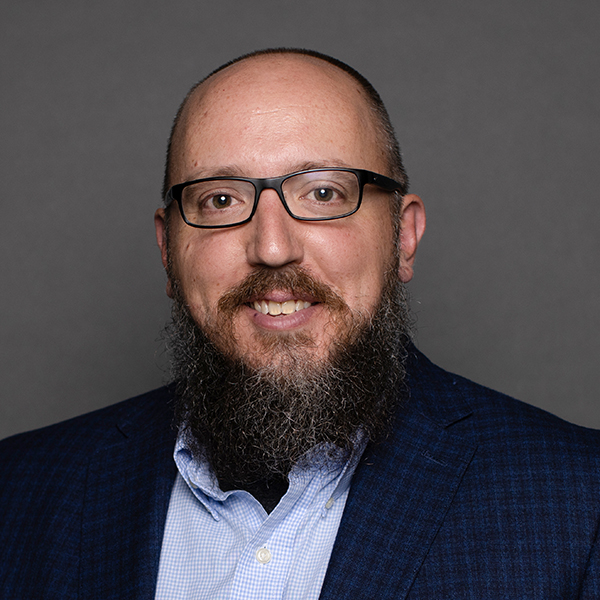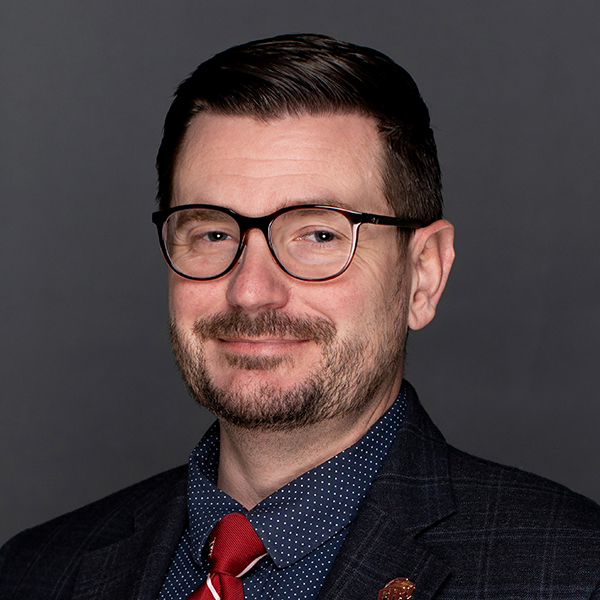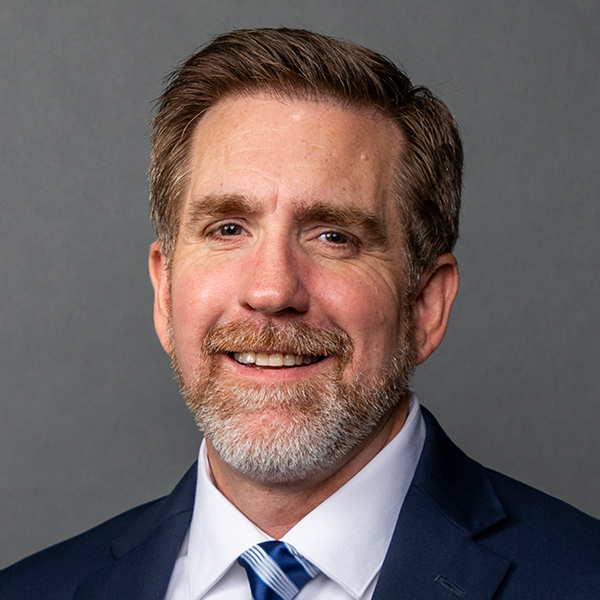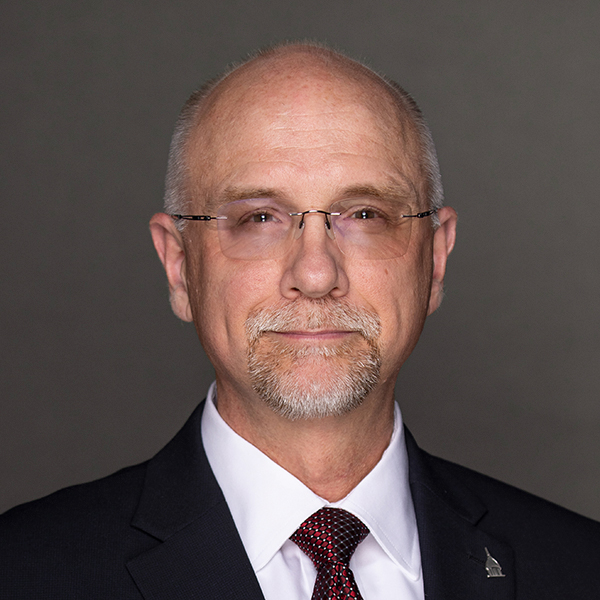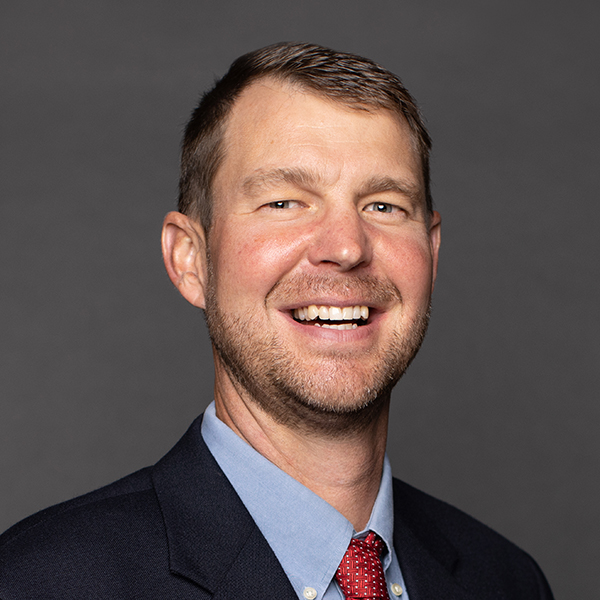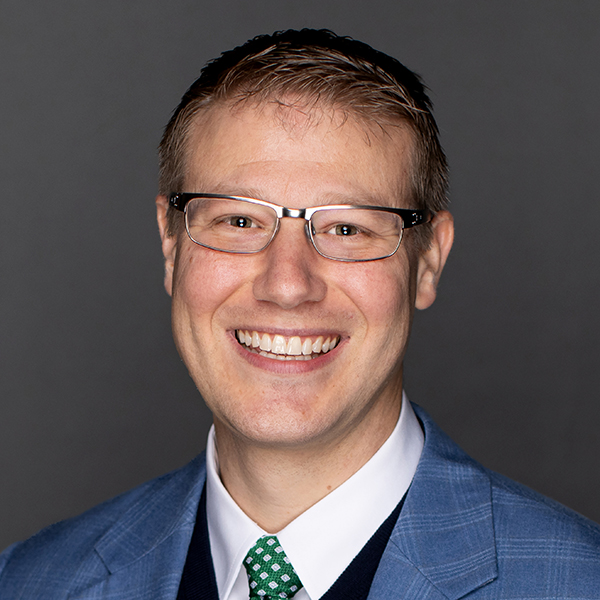graudate school of theology
Master’s Degree in theology
Congratulations on taking the first step towards enriching your knowledge of God’s Word. Whether you are a clergy member or an individual seeking a deeper understanding of theology, Freed-Hardeman University’s Graduate School of Theology offers a Master’s in Theology program to cater to your academic and spiritual goals.
Strengthening the Whole Person

WHY STUDY GRADUATE STUDIES IN theology AT FHU?
Our online platform allows you to study at your own pace while our experienced faculty guide you through the program with personalized attention. You will be part of a vibrant community of learners who share your passion for theology. At the end of the program, you will leave with a comprehensive understanding of theology that will help you serve your church and community better.
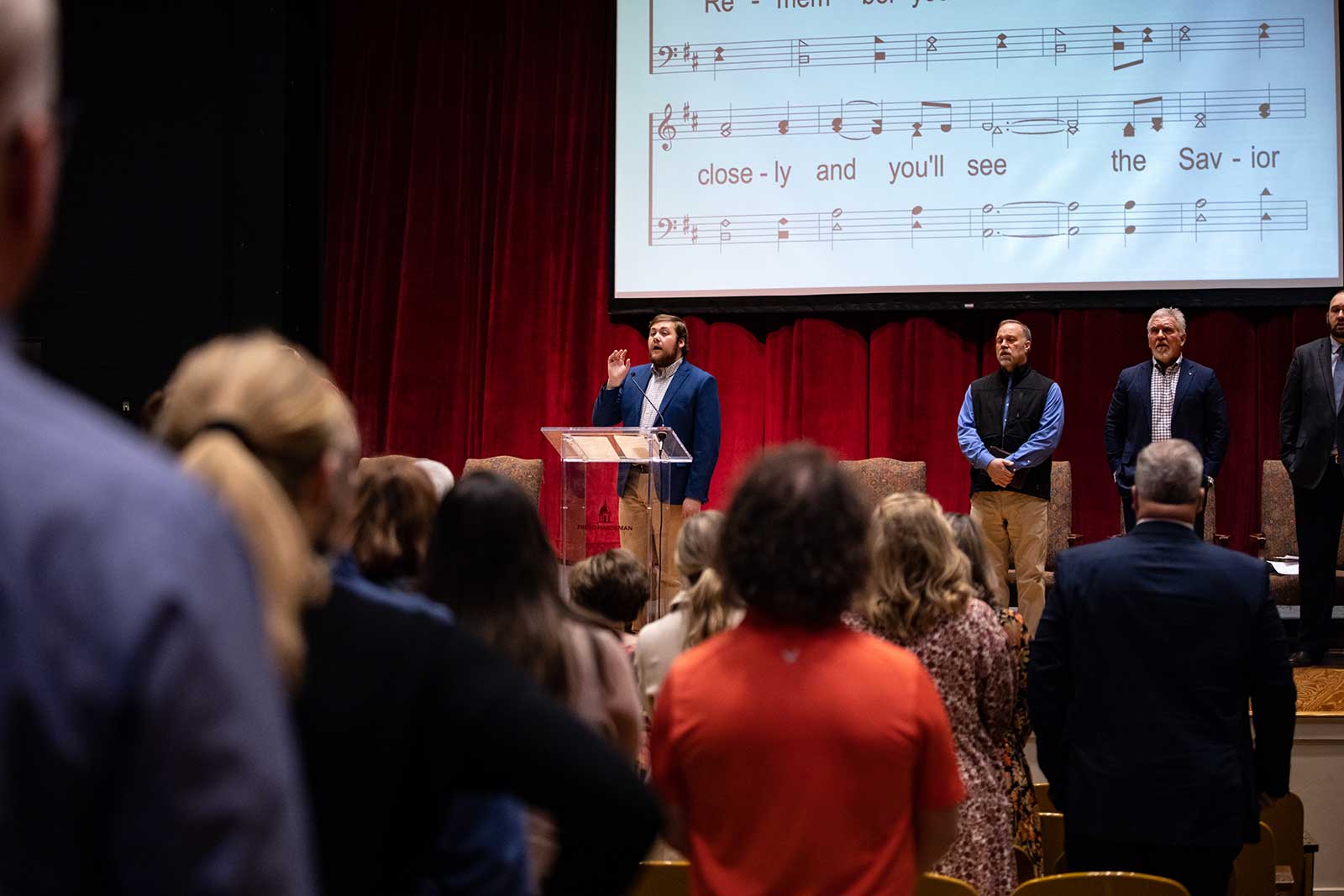
Empowering
Our Graduate Programs in Theology
Are you ready to take your theological studies to the next level? Look no further than Freed-Hardeman University’s graduate programs in theology, which include a variety of master’s degree options. We also recently added a Doctor of Ministry program geared towards practical research to enhance the skills and knowledge of those in ministry. Our commitment to scholarship and service means that you’ll graduate with a degree representing academic achievement and applying to real-world situations in the church.
Grow Spiritually and Practically with a Master’s in Theology
Review the admission requirements and financial information below to understand how pursuing a master’s degree in theology can benefit you spiritually, personally, and in your local church.
Admission Requirements
REGULAR ADMISSION
- Submit an Application for Admission.
- Submit a copy of a government-issued photo ID, such as a driver’s license or passport.
- Must have completed an appropriate baccalaureate degree from a regionally accredited institution or an institution accredited by an agency recognized by the Council for Higher Education Accreditation and approved by the program director.
- A minimum cumulative GPA of 3.0 for regular admission (conditional admission is allowed for a lower GPA).
- Personal essay specifying your goals and how the FHU program will help you meet those goals (300-500 words).
- Scholarship application (optional – see “Forms” page)
- For students for whom English is a secondary language, official scores for the Test of English as a Foreign Language (TOEFL). Minimum scores:
-
- 500 on the paper-based exam
- 173 on the computer-based exam
- 61 on the Internet-based exam
CONDITIONAL ADMISSION
Students who do not meet the minimum requirements for regular admission may apply for conditional admission. Bachelor’s degree graduates of foreign, nationally accredited, or pre-accredited (candidates for regional accreditation) institutions may also be granted conditional admission.
A student granted conditional admission in any graduate program may register for a maximum of 12 graduate semester hours; a student may not register for additional courses after completing the maximum of 12 graduate semester hours without first obtaining regular admission status. A student admitted conditionally may be granted normal admission status only after completing the 12 graduate semester hours with all grades of A or B.
To be considered for conditional admission to any graduate program at FHU, all applicants must provide all the materials required for regular admission, as noted above. In addition, the following criteria apply:]
- Minimum GPA: 2.5
- All other criteria remain unchanged.
TRANSFER CREDITS
A student who has earned graduate credit from a regionally accredited institution generally may transfer a maximum of six (6) semester hours into an approved degree program or three (3) hours for the certificate program. The appropriate director must approve these graduate studies. Some summer workshops, short courses, video courses, online/distance learning courses, etc., may not be accepted as transfer credit.
The Master of Divinity student may transfer in (from any accredited institution) as many as 42 hours of A’s and B’s, which will count toward degree requirements as long as, in the director’s judgment, those courses are reasonable substitutes for core or elective courses.
The University is not obligated to accept any courses for transfer of credit. Transfer courses must reflect and be similar to courses within the program of study the student is entering. Only grades of A or B will be accepted. The coursework must not have been used to satisfy a requirement for any degree previously granted (except in Graduate Theology). Graduate credit from foreign universities is not accepted because of academic and procedural differences between U.S. regionally accredited and foreign institutions. Official transcripts are required before courses can be evaluated, approved, and accepted.
Educational Effectiveness
Freed-Hardeman University Graduate School of Theology evaluates educational effectiveness annually based on findings in two categories: achievement of articulated student learning outcomes (SLOs) and student job placement rates.
ACHIEVEMENT OF STUDENT LEARNING OUTCOMES
M.A. Ministry
SLO 1. Students will demonstrate effective research and writing in ministry and leadership.
- 29 of 36 (81%) students met or exceeded expectations on exegesis and application of a biblical text in Bible text courses.
- 2 of 2 successfully completed comprehensive exams.
SLO 2. Students will incorporate appropriate academic and theoretical principles in congregational leadership.
- 38 of 39 (97%) students met or exceeded expectations regarding the explanation and application of Christian Doctrine in historical/doctrinal courses.
- 2 of 2 successfully completed comprehensive exams.
SLO 3. Students will demonstrate competence in theological communication in interpersonal and public settings.
- 36 of 39 (92%) students met or exceeded expectations for theological research and verbal communication in Bible text or historical/doctrinal courses.
- 2 of 2 successfully completed comprehensive exams.
SLO 4. Students will apply biblical and ministry principles to global contexts.
- 29 of 35 (83%) students met or exceeded expectations regarding practical ministry skills according to the shared assignment rubric in missions or ministry courses.
- 6 of 6 students met or exceeded expectations according to the internship evaluation rubric.
Master of Divinity
SLO 1. Students will possess the tools necessary to interpret Scripture in view of its linguistic and historical contexts.
- 15 of 16 students met or exceeded expectations on exegesis and application of a biblical text in an Old Testament text course.
- The GST had 5 of 5 M.Div. students who successfully completed comprehensive exams.
SLO 2. Students will demonstrate the ability to extract major principles of Christian theology from Scripture and integrate them into the modern Christian faith.
- 8 of 9 students met or exceeded expectations regarding the explanation and application of Christian Doctrine in a historical doctrinal course.
- The GST had 5 of 5 M.Div. students who successfully completed comprehensive exams.
- Our average student ranking on SLO 2 was 3.25 on a scale of 1 (lowest) to 4 (highest)
SLO 3. Students will demonstrate mastery in theological research and verbal communication (both written and oral).
- 8 of 9 students met or exceeded expectations regarding theological research and verbal communication in a historical/doctrinal course.
- The GST had 5 of 5 M.Div. students who successfully completed comprehensive exams.
- Our average student ranking on SLO 3 was 2.88 on a scale of 1 (lowest) to 4 (highest)
SLO 4. Students will integrate essential leadership skills into the general practice of ministry.
- The GST had 5 of 5 M.Div. students who successfully completed comprehensive exams.
- Our average student ranking on SLO 4 was 3.31 on a scale of 1 (lowest) to 4 (highest)
SLO 5. Students will demonstrate significant progress in personal and spiritual formation.
- The GST had 5 of 5 M.Div. students who successfully completed comprehensive exams.
- Our average student ranking on SLO 5 was 3.31 on a scale of 1 (lowest) to 4 (highest)
M.A. New Testament
SLO 1. Students will be able to analyze representative New Testament texts in view of their linguistic and cultural contexts.
- 11 of 12 students met or exceeded expectations in an NT text course
- 1 in 3 (33%) students passed comprehensive exams with a qualification
- 3 of 3 students rated themselves a 3 or 4 on each question of the exit survey
SLO 2. Students will possess the hermeneutical skills necessary to apply the New Testament text in a contemporary context.
- No course was taught in which the curriculum project assessment instrument was used
- 3 of 3 students successfully completed thesis
SLO 3. Students will demonstrate competence in theological research and verbal communication (both written and oral).
- 8 of 10 students met or exceeded expectations for theological research and verbal communication
- An online webinar was planned but not held due to COVID-19
SLO 4. Students will be able to identify and assess key insights of modern New Testament scholarship.
- The thesis handbook was not revised this year
Zondervan Awards
The honorees receive an Award Certificate, a congratulatory letter from Zondervan, and an order form that allows them to select a product of their choice from Zondervan’s catalog. The name of each recipient is added to a plaque provided by Zondervan. These plaques can be seen in the Graduate Studies School of Theology office, located in the Gardner Center (Room 102).
The Biblical Greek Award began in 1999, the Biblical Hebrew Award in 2011, and the Theology Award in 2013.
The Biblical Greek plaque reads as follows:
Zondervan and Freed-Hardeman University
Annual Student Award for Outstanding
Achievement in the Study of Biblical Greek
Past recipients of the Zondervan Greek Award:
2022 – Trenton Karr Kennedy
2021 – Sawyer Blake Hudson
2020 – Timothy Lee Dooley
2019 – Jason Boyd Jackson
2018 – Robert Thomas Murphy
2017 – Caleb Glenn Colley
2016 – Adam Harley Cox
2015 – Spencer Henry Clark
2014 – Glenn Clay Leonard
2013 – Timothy Bryant Perkins II
2012 – Michael Gene Foresha
2011 – Jason Hugh Pierce
2010 – Aaron N. Burch
2009 – Justin Guin
2008 – James R. Mitchell
2007 – Donnie L. DeBord
2006 – Garrett McGilvray
2005 – Robert E. Mackenzie
2004 – Timothy A. Alsup
2003 – Nathan Kedarisetti
2002 – Jeffrey A. Stone
2001 – Jeremy M. O’Clair
2000 – M. Will Hanstein
1999 – Brennan T. Hughes
The Biblical Hebrew plaque reads as follows:
Zondervan and Freed-Hardeman University
Annual Student Award for Outstanding
Achievement in the Study of Biblical Hebrew
Past recipients of the Zondervan Hebrew Award:
2022 – Blake Yuri Hayes
2021 – Cameron Shane Meeks
2020 – Benjamin Scott Coleman
2019 – Robert Thomas Murphy
2018 – Nathan Riley Diller
2017 – Isaac Mitchell Bourne
2016 – William Lee Hagewood
2014 – Justin S. B. Guin
2013 – Aaron Nicholas Burch
2012 – Jason Darrell Sadler
2011 – Jacob Alan Evans
The Theology plaque reads as follows:
Zondervan and Freed-Hardeman University
Annual Student Award for Outstanding
Achievement in the Study of Theology
Past recipients of the Zondervan Theology Award:
2022 – Tyler Edwin Hawkins
2021 – Caleb Glenn Colley
2020 – Jeffrey Paul Smith
2019 – Nathan Riley Diller
2018 – Paul Mark Holland
2017 – Christopher Ryan Graber
2016 – Samuel James Glover
2015 – Robert Kyle Butt
2014 – Spencer Henry Clark
2013 – James Thomas Rutledge
For further information, see www.zondervan.com.
Forms & Materials
Fast Facts
Meet Our Faculty
Frequently Asked Questions About the Graduate & Master’s Programs in Theology at FHU
Please refer to the frequently asked questions section below to learn more about theology graduate studies at FHU. If you need additional help, please get in touch with our faculty office, admissions, or financial aid department.
What are the benefits of the graduate theology degree program at FHU?
The graduate programs in Theology at Freed-Hardeman University (FHU) offer several benefits for students seeking advanced education and specialization in this field. Here are some of the key benefits:
- Rigorous Academic Training: The graduate programs in Theology at FHU provide students with rigorous academic research and writing skills, along with in-depth knowledge of religious practices, beliefs, and traditions. This comprehensive education equips students to engage critically with theological concepts and texts.
- Practical Skills Development: FHU’s programs combine academic study with practical training, preparing students for a life of service to the church and other related professions. Students develop practical skills for effective ministry, counseling, teaching, and leadership roles.
- Specialization Options: FHU offers various graduate programs within the field of Theology, allowing students to specialize in ministry, counseling, Old Testament studies, New Testament studies, and more. These specialization options enable students to focus their studies on their specific areas of interest and career goals.
- Networking Opportunities: The community at FHU fosters camaraderie and connections among students and professors. This network provides valuable networking opportunities that can lead to mentorships, collaborations, and future career prospects.
- Alumni Success: FHU has a strong alumni network who have excelled in various graduate schools and professional roles. Being part of this network opens doors for further educational opportunities and career advancement.
- Spiritual Growth: FHU, as a Christian institution, emphasizes the integration of faith and learning. The graduate programs in Theology provide an environment where students can deepen their own faith and spiritual journey while gaining academic knowledge. Faith-based coursework and engagement with the Bible contribute to personal and spiritual growth.
How can a master's in theology help my ministry?
A master’s degree in theology can profoundly impact your ministry by providing a solid foundation of knowledge, skills, and perspective. Here are some key ways in which a master’s in theology can benefit your church:
- Deepened Theological Understanding: A master’s degree program delves into theological concepts, biblical studies, church history, and ethics. This deepened understanding enables you to interpret and apply Scripture more effectively, enhancing your ability to teach and preach with clarity and insight.
- Enhanced Leadership Skills: A master’s in theology equips you with valuable leadership skills necessary for effective ministry. You will learn about pastoral care, counseling, conflict resolution, and organizational management, empowering you to lead your congregation with wisdom and compassion.
- Expanded Doctrinal Knowledge: Through advanced coursework, you will understand various theological doctrines and traditions comprehensively. This broadened perspective allows you to engage with diverse theological viewpoints and navigate theological debates with nuance and understanding.
- Cultivated Critical Thinking: Pursuing a master’s degree in theology fosters critical thinking and analytical skills. You will learn to evaluate complex theological issues, engage with scholarly research, and develop well-reasoned arguments. These skills enable you to address questions and challenges within your ministry context.
- Informed Ministry Practices: A master’s degree equips you with practical tools and strategies for ministry. Courses on preaching, teaching, pastoral care, and evangelism provide valuable insights and methods to effectively engage with your congregation and community.
- Academic and Professional Networking: During your master’s program, you will have the opportunity to connect with fellow students, faculty members, and guest lecturers actively involved in ministry. These connections can provide valuable networking opportunities, mentorship, and collaboration throughout your career.
- Personal and Spiritual Growth: Engaging in advanced theological studies fosters personal and spiritual growth. Reflecting deeply on theological concepts, engaging with Scripture, and grappling with complex questions can deepen your faith and strengthen your relationship with God, enhancing your ability to minister to others.
How can I complete a graduate degree in theology while working in full-time ministry?
Completing a graduate degree in theology at Freed-Hardeman University (FHU) while working in full-time ministry requires careful planning, dedication, and effective time management. Here are some strategies to help you navigate this dual commitment:
- Flexible Program Options: FHU offers various graduate programs in theology, including online and part-time options. Explore these flexible program formats that allow you to study at your own pace and fit your coursework around your pastoral responsibilities.
- Time Management: Create a detailed schedule that balances your pastoral duties, academic work, personal time, and family commitments. Prioritize tasks, set realistic goals, and allocate dedicated blocks of time for studying, researching, and completing assignments.
- Utilize Online Resources: Take advantage of the online resources and tools provided by FHU, such as digital libraries, virtual classrooms, and discussion forums. These resources allow you to access course materials, engage with professors and fellow students, and submit assignments remotely.
- Delegate and Seek Support: Identify trusted individuals within your church community who can assist with specific pastoral responsibilities. Seek support from your congregation, family, and friends to help manage your workload effectively.
- Integrate Studies and Ministry: Find opportunities to integrate your academic studies with your pastoral role. Apply the knowledge and insights gained from your courses to enhance your preaching, teaching, counseling, and ministry practices. This integration will deepen your understanding and make your studies more relevant to your church community.
- Seek Guidance and Mentorship: Engage with mentors who successfully navigated similar situations. Seek their advice and learn from their experiences balancing ministry and academic pursuits. They can provide valuable insights and guidance to help you manage the demands of both roles.
- Self-Care and Rest: It is crucial to prioritize self-care and rest to avoid burnout. Set aside a designated time for relaxation, exercise, and personal well-being. Taking care of yourself physically, emotionally, and spiritually will ensure you can effectively serve your congregation and excel in your studies.
Remember, every situation is unique, and assessing your circumstances is essential. Consult with academic advisors at FHU to develop a personalized plan that aligns with your specific needs and goals.
What kind of master of theology degrees does FHU offer?
Freed-Hardeman University’s Graduate School of Theology offers a comprehensive range of graduate degrees designed to cater to the academic and spiritual needs of those seeking an in-depth understanding of God’s Word.
- Master of Arts (MA) in Ministry: This degree focuses on practical ministry skills, with subjects such as homiletics and missions.
- MA in New Testament: This program provides a deep exploration of the New Testament, its context, interpretation, application, and church history.
- MA in Old Testament: This degree delves into the Old Testament, offering insights into its historical and cultural backdrop.
- MA in Pastoral Care and Counseling: This course is designed for those interested in integrating pastoral theology and faith into counseling practices.
- Master of Divinity (MDiv): This professional degree prepares students for pastoral ministry.
- Doctor of Ministry (DMin): This is an advanced professional degree aimed at church leaders seeking to deepen their theological understanding and improve their ministry practice.
The faculty members at FHU bring a wealth of knowledge from diverse backgrounds, including Biblical studies, Philosophy, and Judaic Studies, enhancing the learning experience for students. The Graduate School of Theology at FHU is accredited by the Commission on Accrediting of the Association of Theological Schools, ensuring a high standard of theological education.
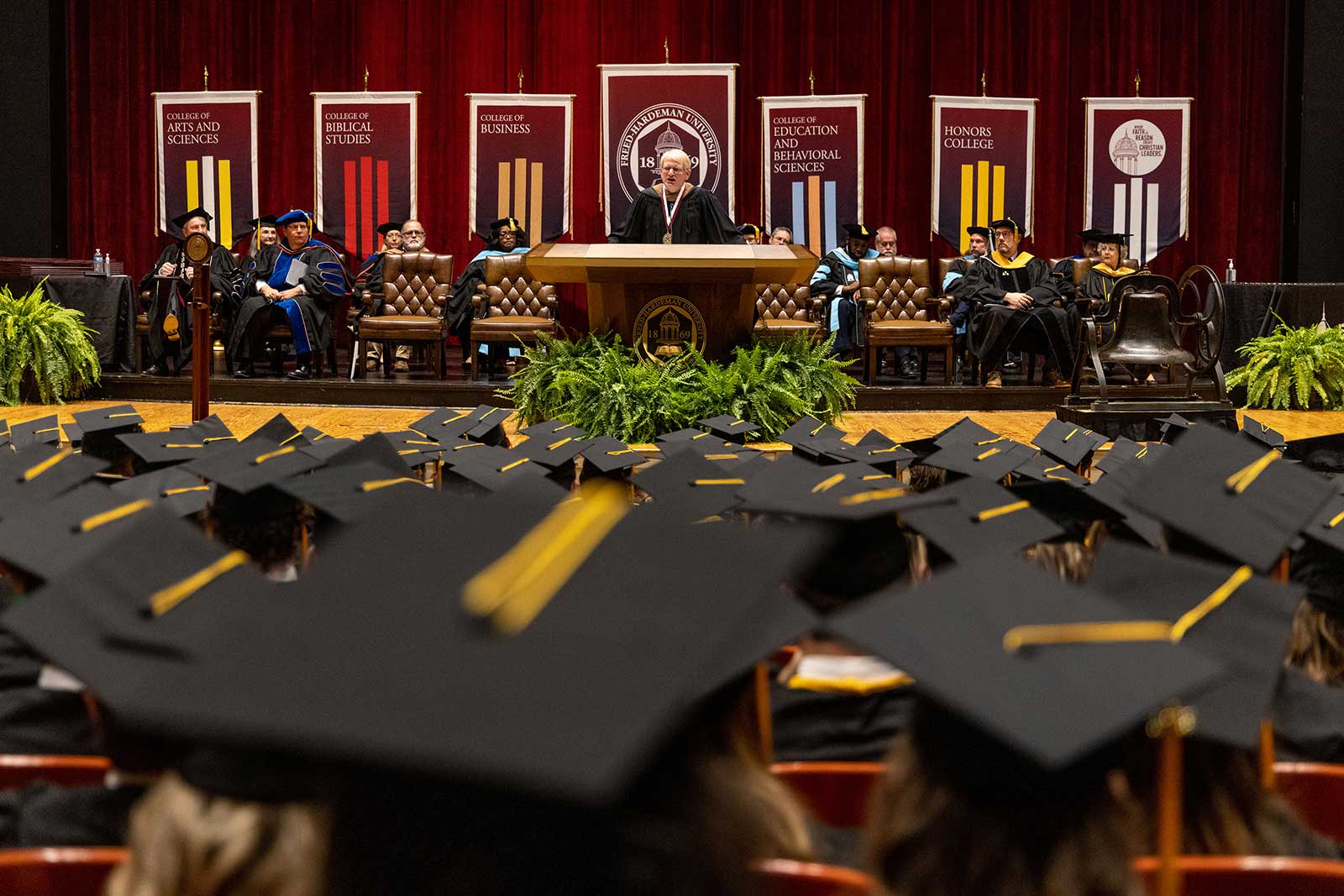
GROWTH AND THRIVE AT FHU
Unlock Your God-Given Potential
At Freed-Hardeman University, we believe that education is more than just academics. We’re dedicated to providing a transformative learning experience that nurtures character development and ethics. Our professors are experts in their fields and passionate about positively impacting their students. With their guidance and support, we’re confident you’ll reach your full potential and leave our campus as a thriving individual.

